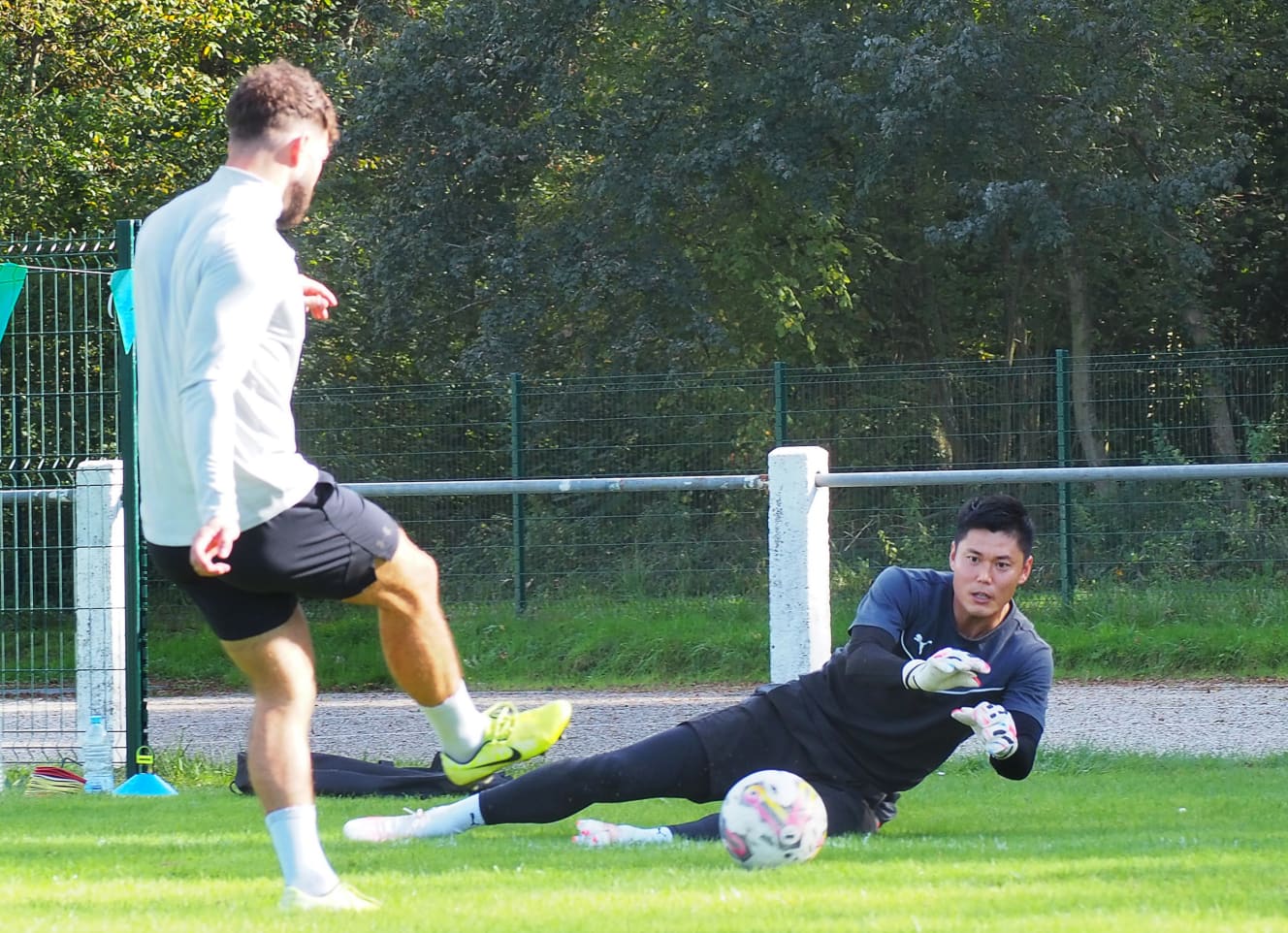Former Japan goalkeeper Eiji Kawashima confesses to his indefatigability: “The desire to get better and better just keeps coming up.
The four-time World Cup legend continues to train in a rural town in France even though he is no longer with his team!
He has been away from the Japan national team since last year’s World Cup in Qatar. Kawashima says he feels he has made a break in his career, but how did he feel about the way Japan’s national team played in the past four World Cups? After the defeat in Qatar, where he was a reserve, Kawashima looked even more disappointed than Shuichi Gonda (34, Shimizu S-Pulse), who played as the regular goalkeeper.
The day before the match against Croatia (in the first round of the final tournament), I was thinking about how we could win the tournament, and I was really frustrated.
In 2010 and 2010, they lost to Paraguay and Croatia on penalty kicks, respectively, and in 2006, they led by two goals against Belgium but lost by three goals in the final minutes. The group league depends on how you play.
We can get out of the group leagues depending on how we play, but we can’t get out of the finals of the tournament without a shot at the final. But in the final tournament, where you have one shot to win, you have to have something more than that to win. It is difficult to express it in words, but it is also true that there is a high wall in front of you when you actually fight, even though it may not seem far away, and that may be what ″experience″ is all about. In that sense, I think that the frustrating experience of the young players in Qatar will be an asset that will lead to the next step.
Perhaps this experience was put to good use early on, as Japan’s national team won their European tour in September, beating Germany and Turkey, and in October they defeated Tunisia and Canada, two of the countries participating in the World Cup, in consecutive games.
When we beat Germany and Spain at the World Cup in Qatar, some people said we could only win once in 10 games with such a defensive style of play. But in the process of growth, the content is not important. Winning is important, and once you win, it becomes normal. In our time, it was a dream to play in Europe, but today’s young players are taking it for granted. The standard has definitely improved. The Japanese national team can still grow, and I think we can expect more from them in the future.
Even at 40 years of age, Kawashima says, “There is no end to what I can learn. I cannot wait to see how the legendary goalkeeper will grow with the Moriyasu Japan team.
